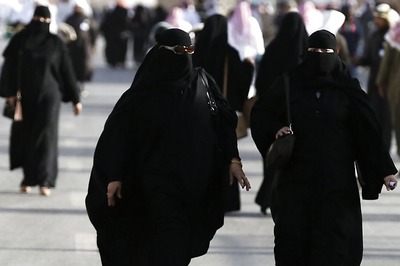
views
Union Home Minister Amit Shah on Wednesday introduced three new bills to replace the existing Indian Penal Code, Code of Criminal Procedure and Evidence Act, which he said had governed our criminal justice system for 150 years. The new legislation has been introduced for consideration and passage in the lower house of Parliament.
“Under the leadership of PM Modi, I have come to bring some major changes to the 150-year-old three laws which governed our criminal justice system,” he said, adding, “the new criminal laws focus on justice rather than punishment.”
On Tuesday (December 19), the Lok Sabha took up the bills, with some MPs saying these will provide justice rather than punishment and others pointing to “loopholes” that they claimed will give discretionary powers to enforcement agencies.
The redrafted Bharatiya Nyaya (Second) Sanhita, the Bharatiya Nagarik Suraksha (Second) Sanhita and the Bharatiya Sakshya (Second) Bill were first listed for consideration on December 14 but could not be taken up following opposition uproar over the December 13 Parliament security breach and their demand for a statement by the home minister on the issue.
Participating in the debate on Tuesday, former law minister and BJP leader Ravi Shankar Prasad said while penalty was the focus in the Indian Penal Code (IPC), under the new bill the emphasis is on justice. In an oblique attack on the Congress, he said people who wrote Discovery of India, forgot this “colonial story” (the British-era IPC and the Evidence Act).
Prasad pointed out that while there were 511 sections in the IPC, the corresponding new bill has 356. He said while 176 sections have been changed completely, eight new have been added. He also pointed out that 22 sections have been deleted.
Here are the top quotes from his address in the lower house of Parliament:
Time to end colonial law: Union home minister Amit Shah said the existing laws were made by foreign rulers to help maintain their supremacy. But, the new laws have been framed by keeping in mind the core values of the Constitution — individual freedom, human rights and equal treatment for all. “Under the leadership of PM Modi, I have come to bring some major changes to the 150-year-old three laws, which governed our criminal justice system,” he said.
Emphasis on justice: Shah said the IPC was formulated as a source of punishment for Indians, so instead of this, we will now have the ‘Bharatiya Nyaya Sanhita, 2023’; the Criminal Procedure Code, 1898 will be replaced by ‘Bharatiya Nagarik Suraksha Sanhita, 2023’; and the Indian Evidence Act, 1872 will be replaced by ‘Bharatiya Sakshya Vidheyak, 2023’. “The new criminal laws will focus on justice rather than punishment,” he said, adding, “the Indian Penal Code, which was made in 1860, was not intended to provide justice but to punish.”
Capital punishment, sedition law, women and children priority: The home minister said Section 124 in the IPC, or the sedition law, has been repealed. “Now, the purpose of this law is not to save the government but the country. In a healthy democracy, everyone has the right to criticise the government, but we will not allow anyone to say anything demeaning about India!” he said, adding, “mob lynching is a despicable crime and so we have brought capital punishment for it.” He further said: “In new laws, crimes against women and children top priority.”
Personal touch: Shah further said he had held at least 158 meetings with regard to the three new bills and personally checked all of them in detail. “I have gone through every comma, full stop of the new criminal laws,” he added.
On terrorism: The minister said there will be no argument on “saving” terrorists. “I am astonished at how some people defend and save the lives of terrorists in the name of human rights when, in fact, it’s terrorism that kills not just humans but human rights as well. Remember, this is neither the rule of Britishers nor the Congress. This is the rule of the Modi government. No arguments to save terrorists will be entertained here,” he added.
Trial in absentia: Shah also said the new legislation has a provision for trial in absentia. “A provision for Trial in Absentia has been introduced…Many cases in the country shook us be it the Mumbai bomb blast or any other. Those people are hiding in other countries and trials are not underway. They don’t need to come here now. If they don’t appear before the Court within 90 days then in their absence trial will go on…A public prosecutor will be appointed for their prosecution. They will be hanged…It will make the process to bring them back speedy since it changes their status in the other country when they get prosecuted,” he said.
‘Tarikh pe tarikh’: For the poor and underprivileged, the biggest challenge to get justice is the financial challenge, Shah said. “For years, ‘tarikh pe tarikh’ was the system. Police held the judicial system responsible. The government held the police and judiciary responsible. The police and judiciary held the government responsible for the delay. Now, we have made many things clear in the new laws…” he added.
No delays: In the CrPC, Shah said, there were 484 sections; now, there will be 531 sections in it. Changes have been made in 177 sections and nine new sections, 39 new sub-sections, and 44 new provisions have been added, he said. “Now, the accused will get seven days to file a plea for acquittal…The judge has to hold the hearing in those seven days and in a maximum time of 120 days, the case would come to trial. There was no time limit for plea bargaining earlier. Now if one accepts their crime within 30 days of the crime then the punishment would be less…There was no provision to present documents during trials. We have made it compulsory to produce all documents within 30 days. No delays will be made in that,” he added.


















Comments
0 comment